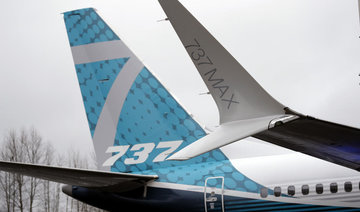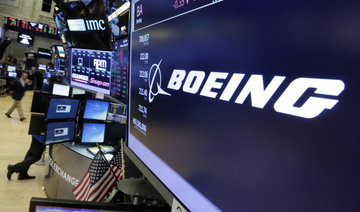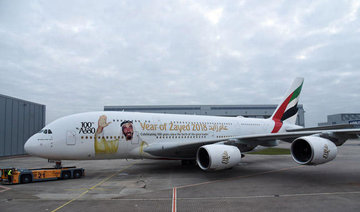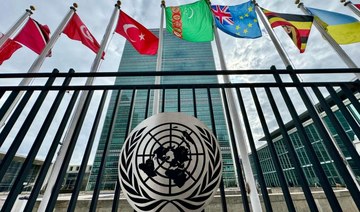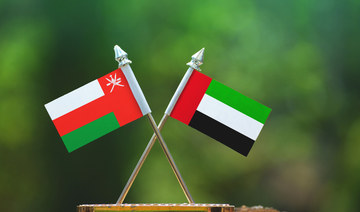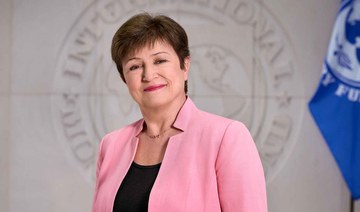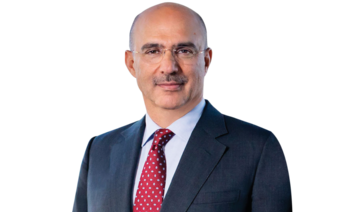SINGAPORE: The world’s largest aircraft manufacturers signaled a possible increase in output of their most popular passenger jets on Tuesday, highlighting their confidence about growth in demand for air travel.
Although new orders have dwindled following a seven-year boom, executives at the Singapore Airshow suggested Airbus and Boeing have enough business in their bulging order books to speed up their already-record production of narrowbody jets.
“The success of the product is forcing us to look at any opportunities we have to improve the rate. We have not come to any conclusion yet but this is something we are looking at very closely,” Airbus sales chief Eric Schulz told a news conference.
Schulz, making his first appearance since being recruited from Rolls-Royce to replace retired sales chief John Leahy, shrugged off concerns about the ability of the supply chain to keep up with higher production rates.
“I think the supply chain will be able to cope and we will be able to raise rates as needed in the market,” he said.
His comments match confidence from rival Boeing as the industry responds to growing demand for medium-haul jets.
In an interview with Reuters, a senior Boeing official said the US company was confident in demand for its 737 MAX jet, the latest version of which was rolled out on Monday.
“There is upward pressure (on production rates) because we are oversold,” Marketing Vice President Randy Tinseth said.
“If you want a (737) MAX today, we are talking 2023,” he said, refering to long waiting times for new jets.
Just as airlines overbook seats, aircraft manufacturers typically sell more aircraft than they plan to produce to protect themselves from airlines going bankrupt or failing to take delivery.
These comments show both manufacturers are confident they can preserve an adequate buffer, even with higher output.
Engine maker CFM International, which supplies both Boeing and Airbus, said last month that manufacturers had begun asking about its ability to support higher production.
Boeing currently produces 47 of its 737 narrowbody aircraft per month and is heading toward 57 per month next year.
Airbus is increasing production to 60 per month by mid-2019.
Industry sources have said both companies are looking at increasing production to as much as 70 single-aisle jets a month.
But the head of the world’s largest aircraft leasing company is yet to be convinced that markets can support such levels.
“Can both of them go to 70? I don’t think so. 140 a month, I don’t think that is possible at the moment,” AerCap CEO Aengus Kelly told Reuters when asked whether the market could support such levels of production.
Even so, he expected Airbus and Boeing, which make up the bulk of the $140 billion a year jet market, to exercise restraint.
“If the market can take it, they will give it. If the market won’t take it, they won’t,” he said.
“What is much more important for the manufacturers is not what they say they do, and not what the orders are but what they are delivering,” Kelly said. “If you look back over the past 20 years what you see is a very strong correlation between traffic growth and deliveries,” he said.
Boeing and Airbus speed up output to meet rising demand
Boeing and Airbus speed up output to meet rising demand
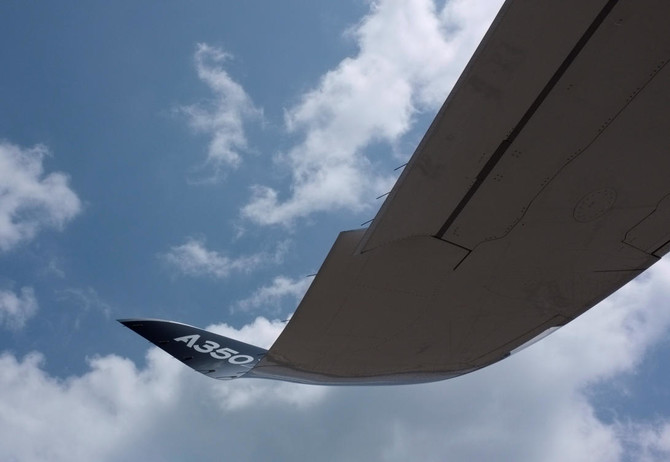
More than two-thirds of UAE retail investors hold stocks in AI companies: eToro survey

RIYADH: More than 70 percent of retail investors in the UAE have stocks of companies developing artificial intelligence, according to a survey by trading platform eToro.
The 71 percent mark underscores a widespread understanding of AI’s potential as a catalyst for innovation and a source of competitive edge.
UAE retail investors’ interest in AI goes beyond holding stocks. When asked about their use or plans to use AI tools like ChatGPT to guide investment decisions, 39 percent reported that they already employ these technologies.
Global Markets Strategist at eToro, Ben Laidler, said: “Microsoft’s recent $1.5 billion investment in Abu Dhabi’s G42 is a big endorsement of the UAE’s potential as a global AI hub, which is reflected in the survey results showing widespread AI adoption by local investors and consumers.”
Millennials lead the charge when it comes to generational users, with 40 percent of those aged 25-44 using AI tools.
Baby Boomers and Gen X investors follow closely, with 39 percent and 38 percent, respectively.
Underlining the critical role that artificial intelligence might play in future investment strategies, an additional 52 percent of respondents, beyond those already using AI tools, said they are willing to adopt the technology to guide or adjust their portfolios in the future.
This trend defies generational stereotypes, with the older cohorts of investors directing the charge.
Baby Boomers lead in interest in integrating AI into investment planning, with 60 percent showing enthusiasm, followed by Gen X at 58 percent.
Laidler said: “AI stocks were the performance juggernauts of 2023, leading the tech sector revival and propelling the S&P 500 into bull market territory. AI trends helped make NVIDIA and Meta the best S&P 500 stock performers of last year, with their share prices tripling.”
He added: “Whilst we’re unlikely to see a repeat performance in 2024, the benefits of AI’s rapid adoption are broadening across the stock market and economy as it rapidly moves from hype to reality.”
Furthermore, eToro analyzed which companies experienced the highest proportional increase in UAE-based investors on its platform from quarter to quarter, revealing that AI stocks were the most popular theme during the first three months of the year.
Omani officials forge economic alliances with Saudi Arabia, Japan, and US
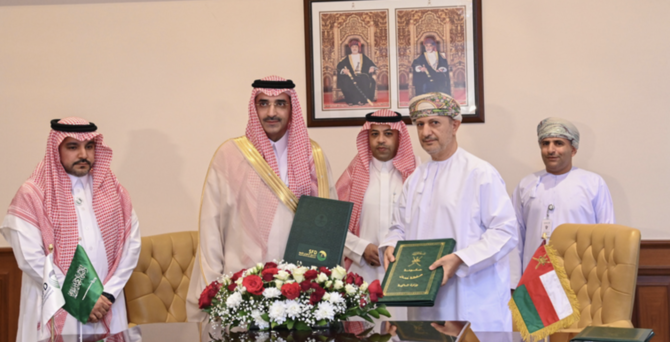
RIYADH: Oman’s industrial infrastructure is set to receive a boost following a new agreement with Saudi Arabia, fostering private sector participation in the country’s economic growth.
A memorandum of understanding, aimed at financing the infrastructure of several industrial zones in Oman, was signed during a meeting between Minister of Finance Sultan bin Salem Al-Habsi and Sultan Abdulrahman Al-Marshad, CEO of the Saudi Fund for Development, the Oman News Agency reported.
Discussions centered on cooperation mechanisms between Oman and the fund, along with updates on collaborative development projects.
The aim is to develop the industrial and logistical sectors by providing all necessary basic services, thereby encouraging the private sector to contribute to Oman’s economic development in line with Oman Vision 2040, as reported by the agency.
This memorandum falls within the framework of cooperation between the two parties to support developmental areas in Oman. These encompass infrastructure, higher and vocational education programs, and water, along with the industry and mining sectors. Additionally, it includes transportation and communications sectors, as well as developmental projects in the energy sector.
On another note, Ali bin Masoud Al-Sunaidi, chairman of the Public Authority for Special Economic Zones and Free Zones, met with Ken Saito, minister of economy, trade and industry of Japan, and his accompanying delegation in Tokyo.
During the meeting, they reviewed the business cooperation between the two countries and the major projects under construction in the economic and free zones and industrial cities in Oman, notably the low-carbon iron production project in the Special Economic Zone in Duqm.
The visit also included meetings with officials from companies engaged in iron and its derivatives production, and renewable energy equipment manufacturing companies, as well as a visit to Yokohama Port to learn about its experience in receiving ships specialized in energy and petroleum product transportation.
Also on April 24, Oman and the US explored ways to enhance trade, investment, and address challenges comprehensively during the second strategic dialogue held in Washington.
The Omani side was chaired by Sheikh Khalifa bin Ali bin Issa al-Harthy, undersecretary for Diplomatic Affairs, Ministry of Foreign Affairs, while the US side was chaired by Jose Fernandez, undersecretary of state for Economic Growth, Energy, and the Environment.
Both sides discussed opportunities for American companies in Oman, focusing on ICT, semiconductors, and clean energy services, expressing commitment to enhancing cooperation in clean energy solutions and mineral investments.
They addressed environmental priorities under the Omani-American cooperation memorandum, fostering communication between researchers from both countries for clean energy research.
Saudi NHC, Spain’s Urbas to construct almost 600 housing units in Al-Fursan suburb
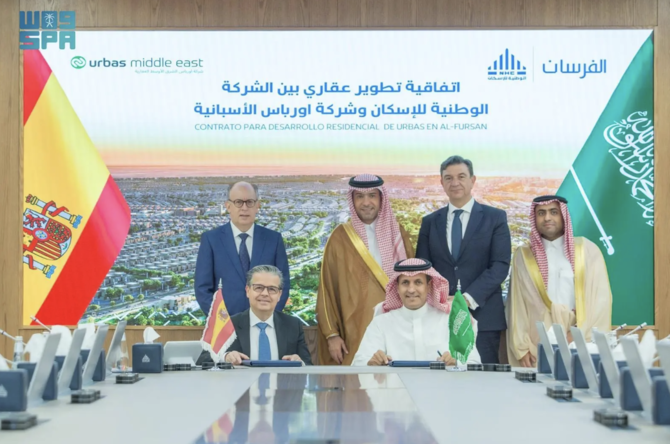
RIYADH: Saudi Arabia’s Al-Fursan suburb will soon be home to 589 new residential units worth around SR1 billion ($266 million) thanks to a deal sealed by the National Housing Co.
Inked with Urbas Middle East Real Estate Co., a subsidiary of the Spanish Urbas Group, the agreement involves the development as well as construction of the housing units on an area spanning 150,000 sq. m, the Saudi Press Agency reported.
This collaboration marks a significant milestone in the development of the Al-Fursan suburb. It also promises to set new standards in property development.
“This agreement complements the efforts of the recent visit to Spain and continues to attract international investments with major companies to provide various housing products that fulfill and meet the desires of citizens,” Saudi Minister of Municipal and Rural Affairs and Housing Majid Al-Hogail said in a post on X.
“As an extension of our journey in attracting the best international experiences and expertise in the real estate development industry, I was pleased to meet the CEO of the Spanish company Urbas, which is planned to be one of the companies developing the Al-Fursan neighborhood project in Riyadh,” Al-Hogail added.
The minister also highlighted how this step will contribute to providing innovative housing options and facilitate the exchange of experiences between Saudi and international developers.
Moreover, NHC has also revealed the sale of 1,300 residential units within Al-Fursan in the first quarter of 2024, generating a total value exceeding SR1.5 billion.
This accomplishment emphasizes the firm’s keenness in creating vibrant, quality living spaces that meet and exceed the expectations of modern residents.
Al-Fursan, known as one of the largest urban development projects in the region, is designed to align with the Kingdom’s Vision 2030.
The suburb covers an area of 35 million sq. m. and is set to feature over 50,000 housing units, accommodating more than 250,000 residents.
It is equipped with over 190 crucial facilities, including educational, healthcare, and recreational services, all surrounded by more than 6 million sq. m. of green spaces. This widespread greenery is part of a broader initiative to further elevate the living environment and contribute to the Saudi Green Initiative by planting over half a million trees.
Urbas Group has experience in over 20 countries with 30,000 residential units. Urbas Middle East plans to grow in Saudi Arabia, showing its commitment to global expansion.
IMF surcharges on borrowings exacerbate global inequities: report
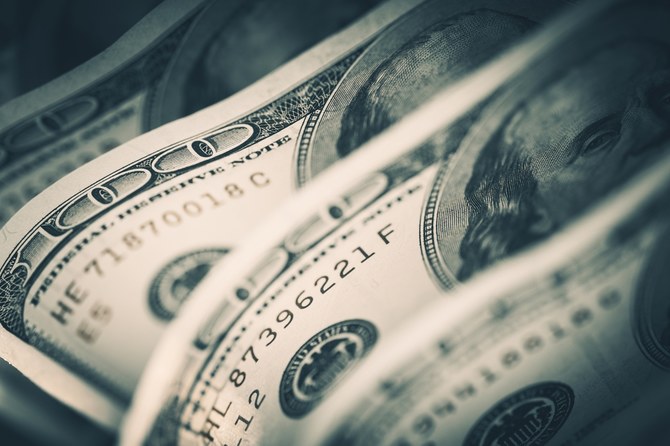
BENGALURU: Countries, mostly middle and lower-income, have been burdened by surcharges on top of interest payments on their borrowings from the International Monetary Fund, widening global inequities, according to a report by US think tanks.
WHY IT’S IMPORTANT
Indebted member countries paid about $6.4 billion in surcharges between 2020-2023, the report from Boston University’s Global Development Policy Center and Columbia University’s Initiative for Policy Dialogue released on Tuesday showed.
And the number of countries paying these surcharges has more than doubled in the last four years.
The IMF is expected to charge an estimated $9.8 billion in surcharges in the next five years, according to an earlier report by the Center for Economic and Policy Research.
Critics of the policy argue that surcharges do not hasten repayment and instead punish countries already struggling with liquidity constraints, increase the risk of debt distress and divert scarce resources that could be used to boost the struggling economies.
BY THE NUMBERS
Countries such as Ukraine, Egypt, Argentina, Barbados and Pakistan pay the most in surcharges, the report showed, accounting for 90 percent of the IMF’s surcharge revenues.
These surcharges, levied on top of the fund’s increasingly steeper basic rate, are IMF’s single largest source of revenue, accounting for 50 percent of total revenue in 2023.
KEY QUOTES
“IMF surcharges are inherently pro-cyclical as they increase debt service payments when a borrowing country is most need of emergency financing," Global Development Policy Center’s Director Kevin Gallagher said.
“Increasing surcharges and global shocks are compounding the economic pressure on vulnerable countries.”
CONTEXT
Data published by the Institute of International Finance earlier this year showed global debt levels hit a record of $313 trillion in 2023, while the debt-to-GDP ratio — a reading indicating a country’s ability to pay back debts — across emerging economies also scaled fresh peaks.
IMF shareholders agreed last week on the importance of addressing challenges faced by low-income countries, Managing Director Kristalina Georgieva said on Friday.
China’s wealth fund joins with Bahrain’s Investcorp for $1bn Middle East investment
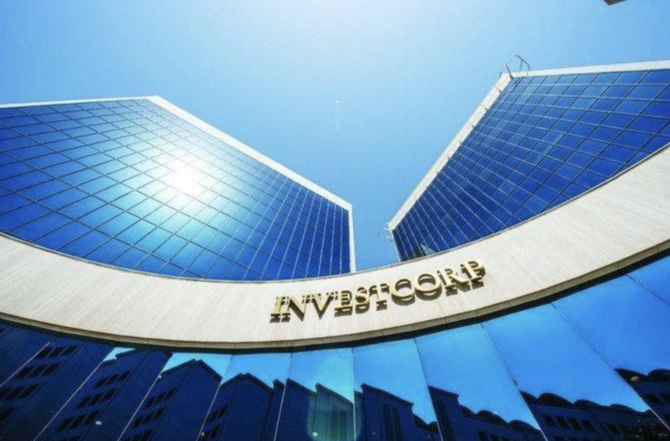
RIYADH: China’s growing interest in the Middle East continues as the country’s sovereign wealth fund partnered with Bahrain’s Investcorp to establish a $1 billion investment pot.
According to a press statement, Investcorp Golden Horizon fund will assist companies across Saudi Arabia, the wider Gulf Cooperation Council region and China.
The reserve will be anchored by reputable institutional and private investors from the GCC, as well as China Investment Corp.
The press statement revealed that target companies are expected to have high growth potential in sectors including consumer, health care, logistics and business services.
“During the past couple of years, we have built several bilateral funds with leading financial institutions to facilitate industrial cooperation between China and major economies in the world,” said Bin Qi, executive vice president and chief information officer at CIC.
He added: “Currently, we are working closely with Investcorp to build a similar bilateral fund to strengthen financial and industrial ties between China and GCC countries.”
This commitment from CIC comes when the GCC’s appeal to institutional investors is gathering pace, thanks to its stable regulatory environment and pro-business policies, driven by economic diversification efforts in the region and strategic privatization mandates.
“This commitment by CIC, one of the world’s largest sovereign wealth funds, is a testament to Investcorp’s unparalleled franchise in the GCC and reinforces the trust placed in the firm’s global platform and teams. We are looking forward to building on this relationship and growing our partnership in the future,” said Mohammed Al-Ardhi, executive chairman of Investcorp.
Co-CEO of Investcorp Hazem Ben-Gacem said the launch of the new fund will facilitate cross-border cooperation and investments between the GCC and China.
Trade and economic relationships between the Middle East and China have always been strong.
In 2023, China’s exports to Saudi Arabia and the UAE amounted to $42.86 billion and $55.68 billion respectively.
On the other hand, the Asian giant’s imports from Saudi Arabia totaled $64.36 billion in 2023.
In November, Saudi Arabia’s central bank, also known as SAMA, and the People’s Bank of China signed a local currency swap agreement worth $6.93 billion.
SAMA, in a statement, said that the three-year agreement “has been established in the context of financial cooperation between the Saudi Central Bank and the People’s Bank of China.”
The Asian country’s central bank said that the agreement will help strengthen financial cooperation between Saudi Arabia and China, promote the use of local currencies, and strengthen trade and investments between nations.


